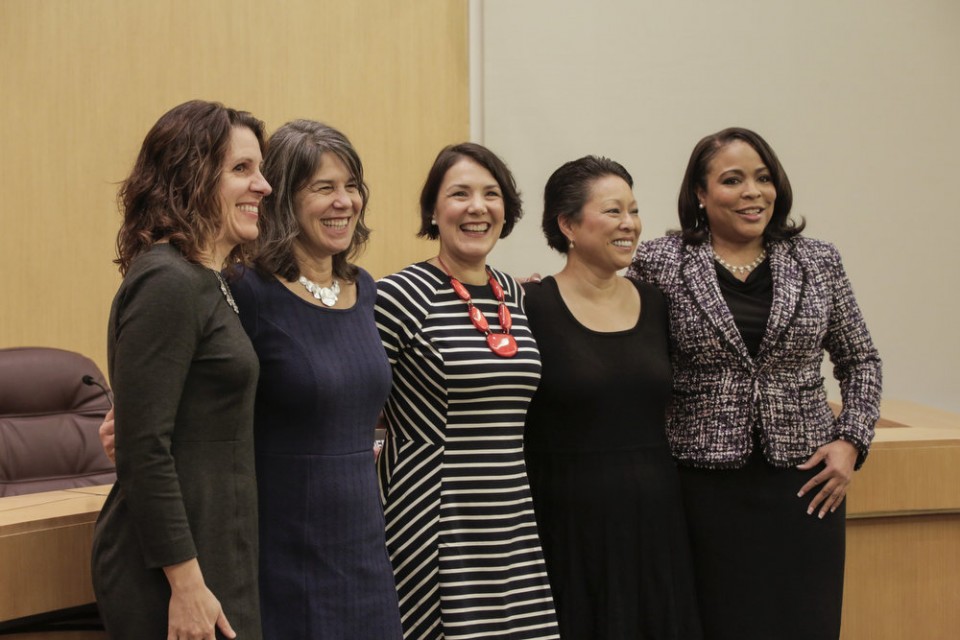Multnomah County ushered in a new era Tuesday: For the first time in its 162-year history, most commissioners are people of color.
Emergency room doctor Sharon Meieran and former State Rep. Jessica Vega Pederson were sworn in Tuesday at the county headquarters in Portland. And Lori Stegmann, an insurance agent, became the first Asian American on the now all-women board.
“This is a milestone that is long overdue,” Stegmann said at the meeting. “As an immigrant, a minority woman and someone who grew up in Rockwood, one of the poorest neighborhoods in Oregon, I recognize some institutional barriers and implicit biases we all have.”
Three of the five commissioners are now women of color, including Vega Pederson, a Latina, and Loretta Smith, the second African American woman to serve on the board.
“It’s always wonderful to be a part of something historic,” said Vega Pederson, whose East Portland district is one of the county’s most diverse. “But I am so excited I get to work with such a talented, experienced, intelligent group of women. We come from such different backgrounds and experiences. Better policies are shaped when you have different perspectives and backgrounds. To create solutions that are going to benefit everyone, that is what government should be about.”
The county board’s diversity stands in stark contrast with Portland’s City Council. In more than 100 years, the city has had only two commissioners of color — both black men — and only eight women.
One reason for that discrepancy, the new commissioners said at a Portland City Club forum in mid-December, is the county elects its representatives by district while City Council members must campaign across Portland.
“(Campaigning citywide is) much more expensive,” Vega Pederson said at the forum. “It takes more work. You have to have much higher name recognition. Because of that, you see fewer women stepping up to do that.”
Robust campaign finance reform could level the planning field, Meieran said.
“Traditionally, men have more of that networking and are able to garner that financial support in ways that may have been more traditionally challenging for women,” she said at the City Club’s Friday Forum.
Stegmann, who was abandoned in South Korea and later adopted by a Gresham couple, said Tuesday she hopes her election represents a new era. Growing up, she said, she felt invisible. She did not have “strong women or folks of color” as role models. She hopes to pay back her parents, who saved her life, by helping others.
“Seeing is believing,” she said. “I hope other kids can look at me and say, ‘Lori was an immigrant. Lori was adopted. Lori is a minority. And she can do this. So I can do this.’ I hope to set an example for people who may not think they are leadership material when in fact they are. If they see people who look like them, who have similar backgrounds, I hope that encourages them.”
By: Casey Parks | January 03, 2017 | Oregonian | Original article
